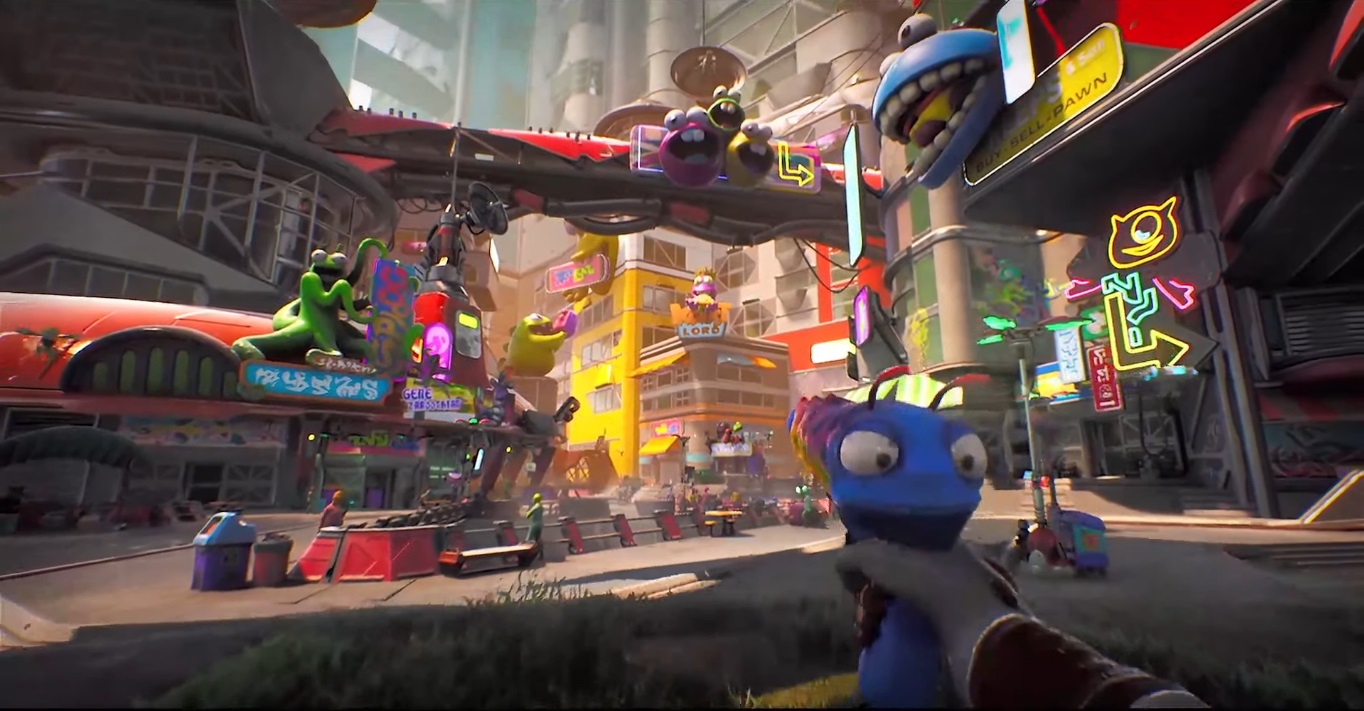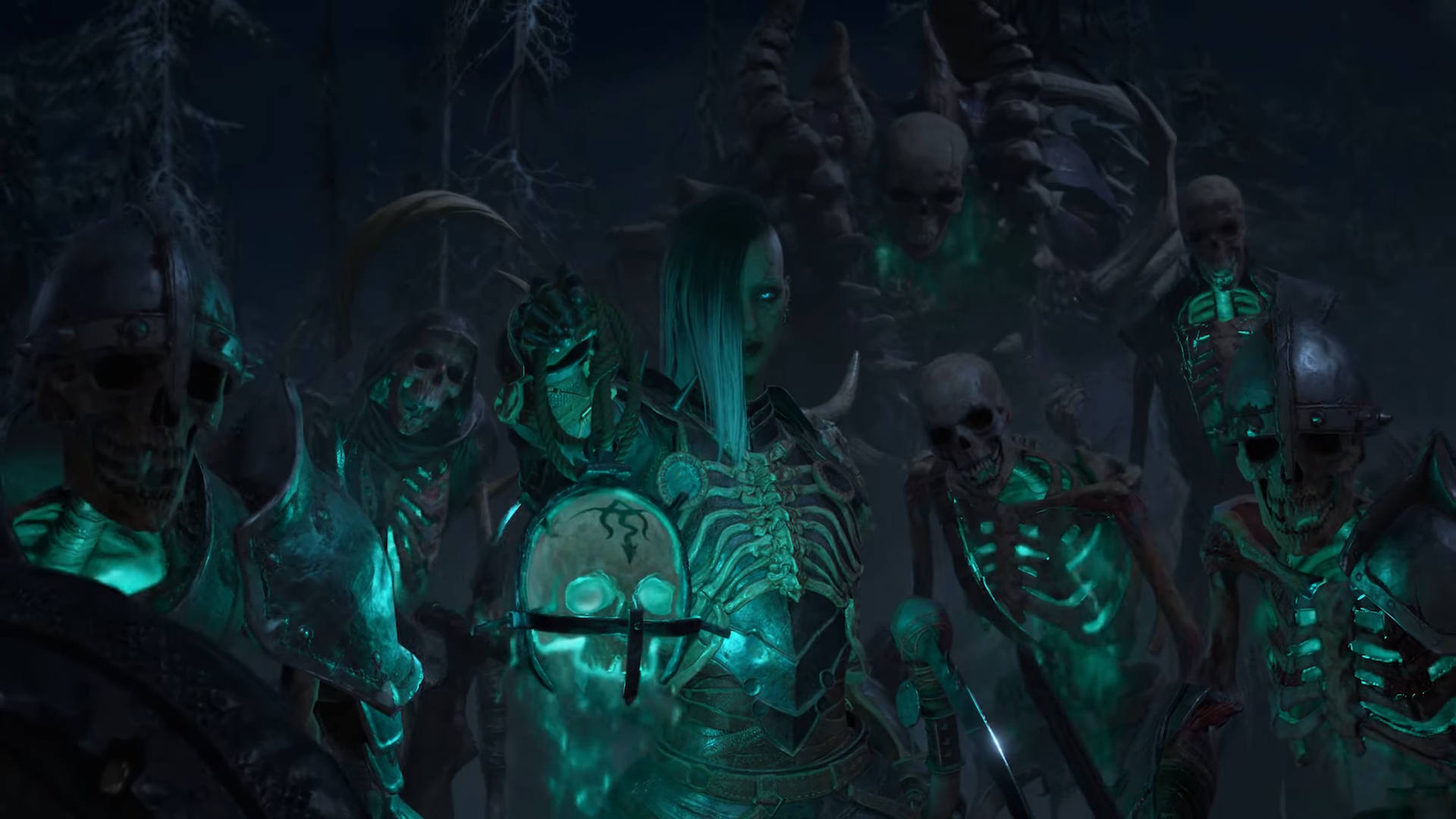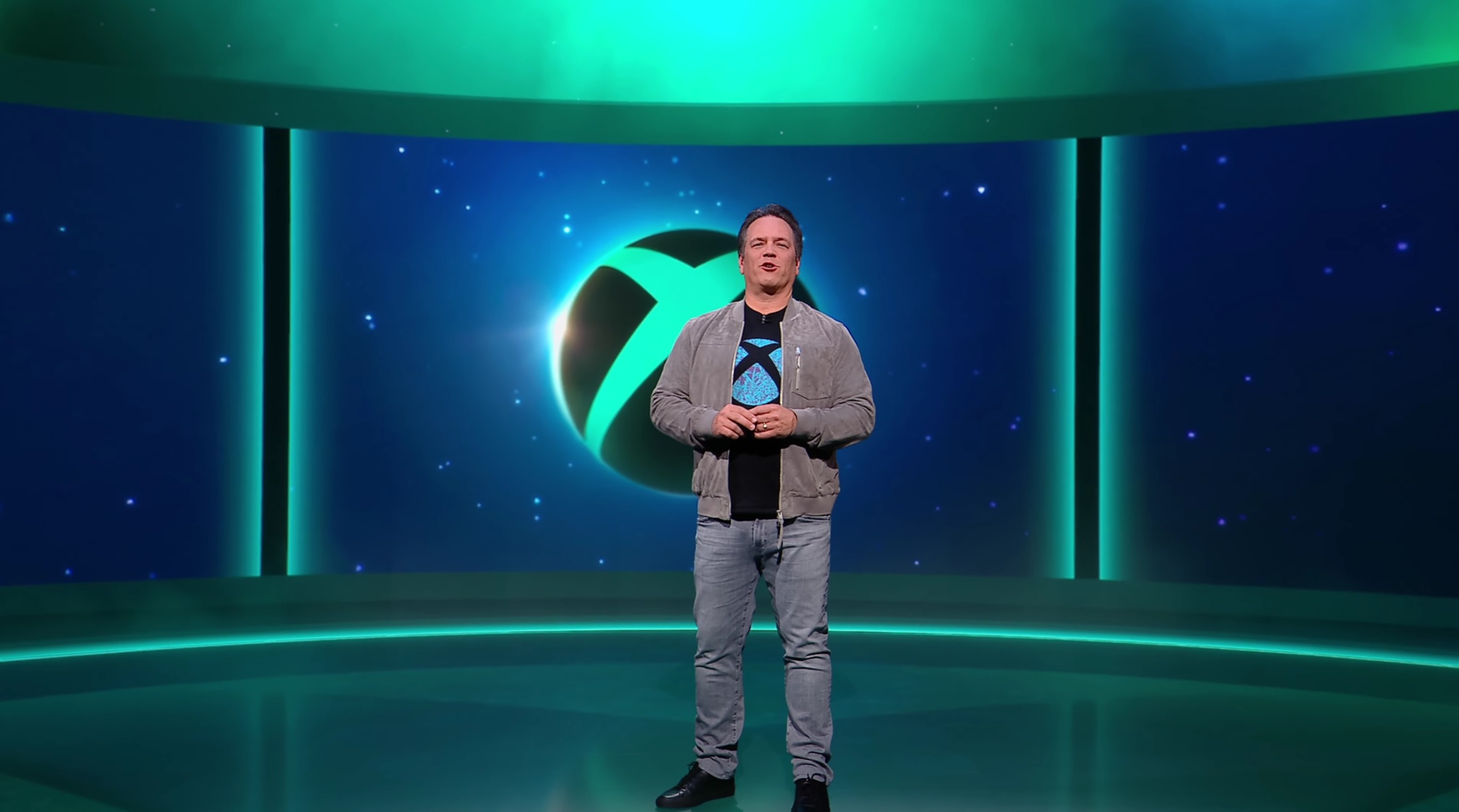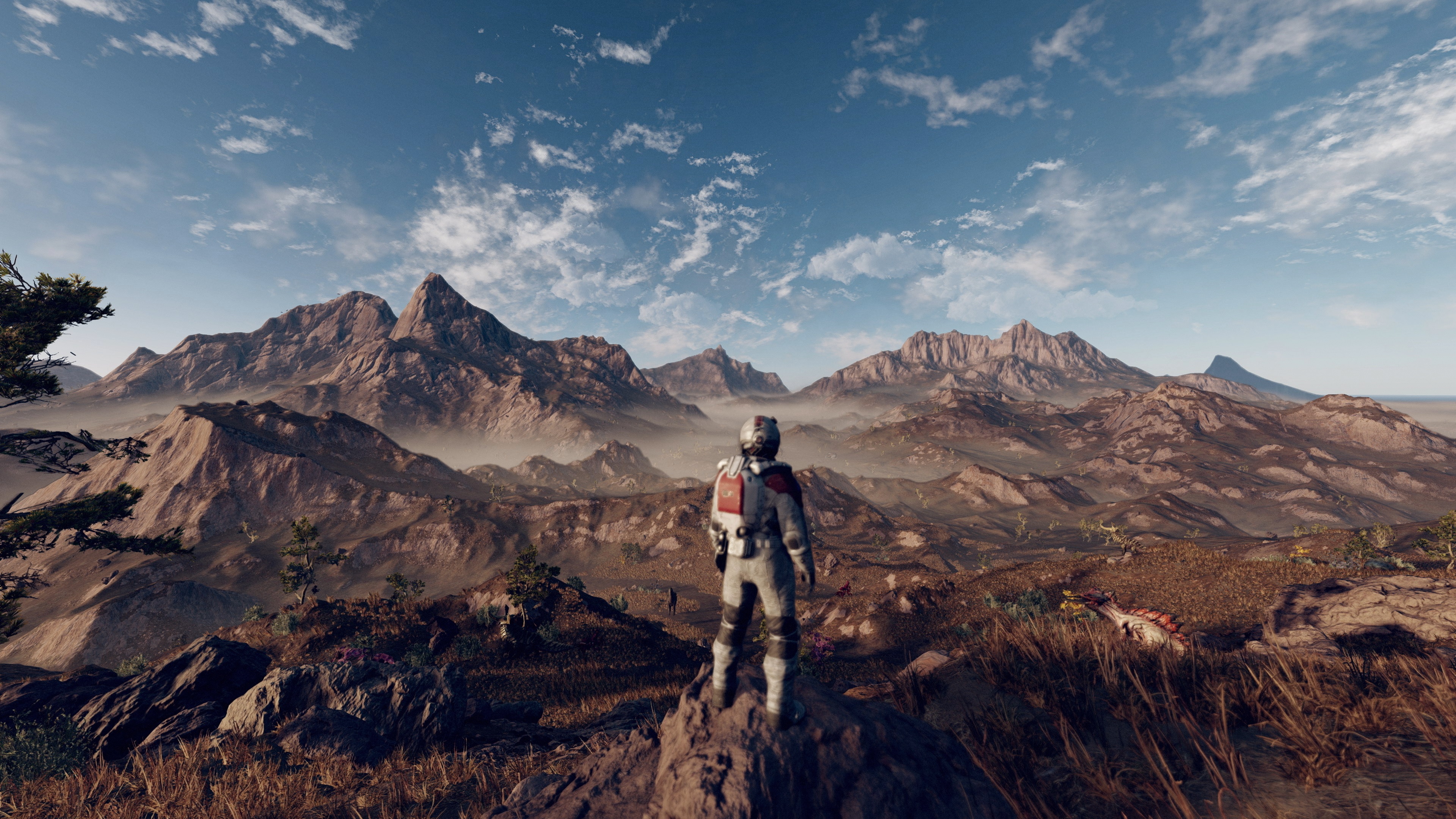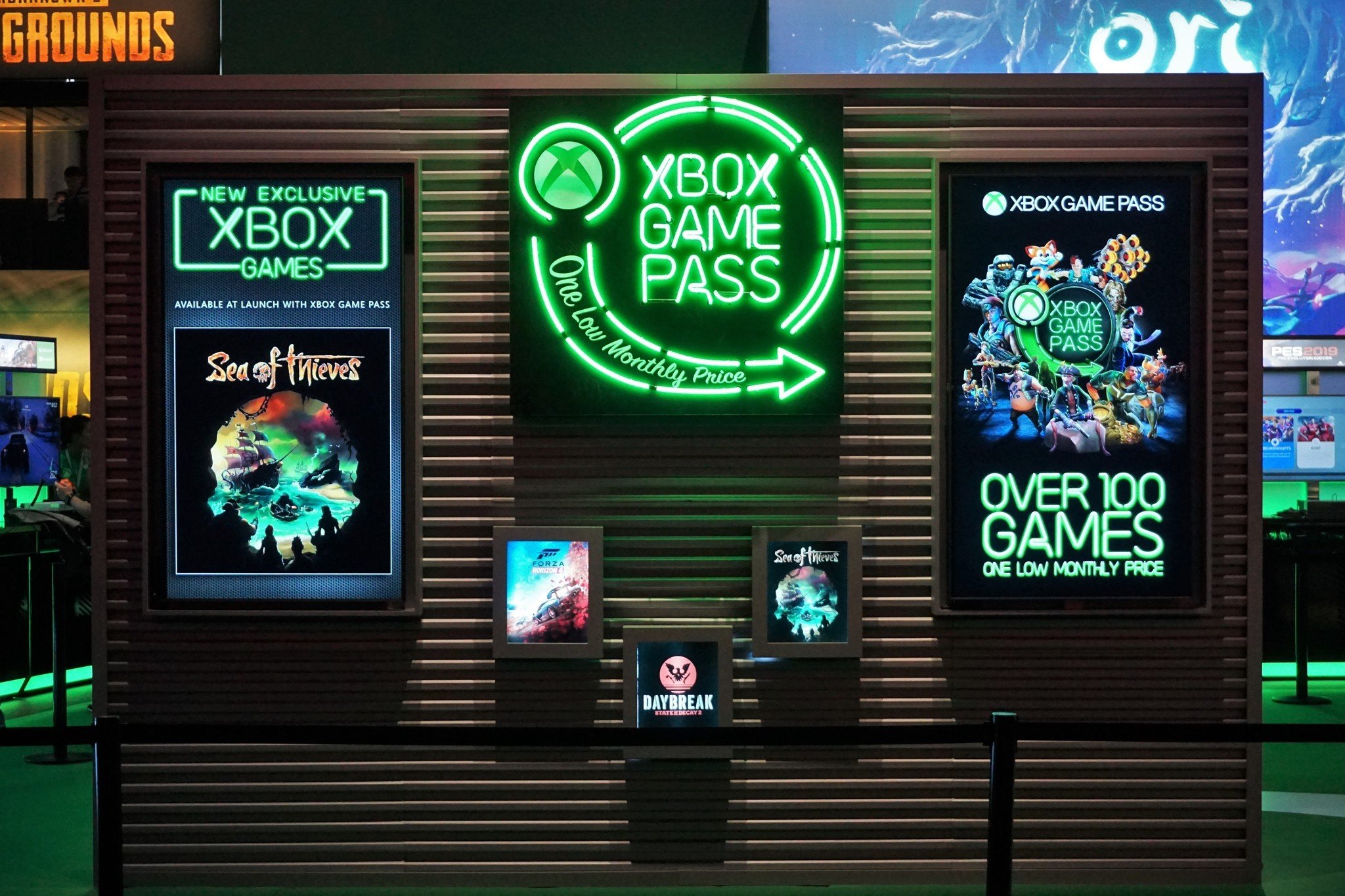Xbox's showcase message: We are here for everyone
Variety is king at Xbox, as the company's marketing messaging adapts for the Game Pass era.
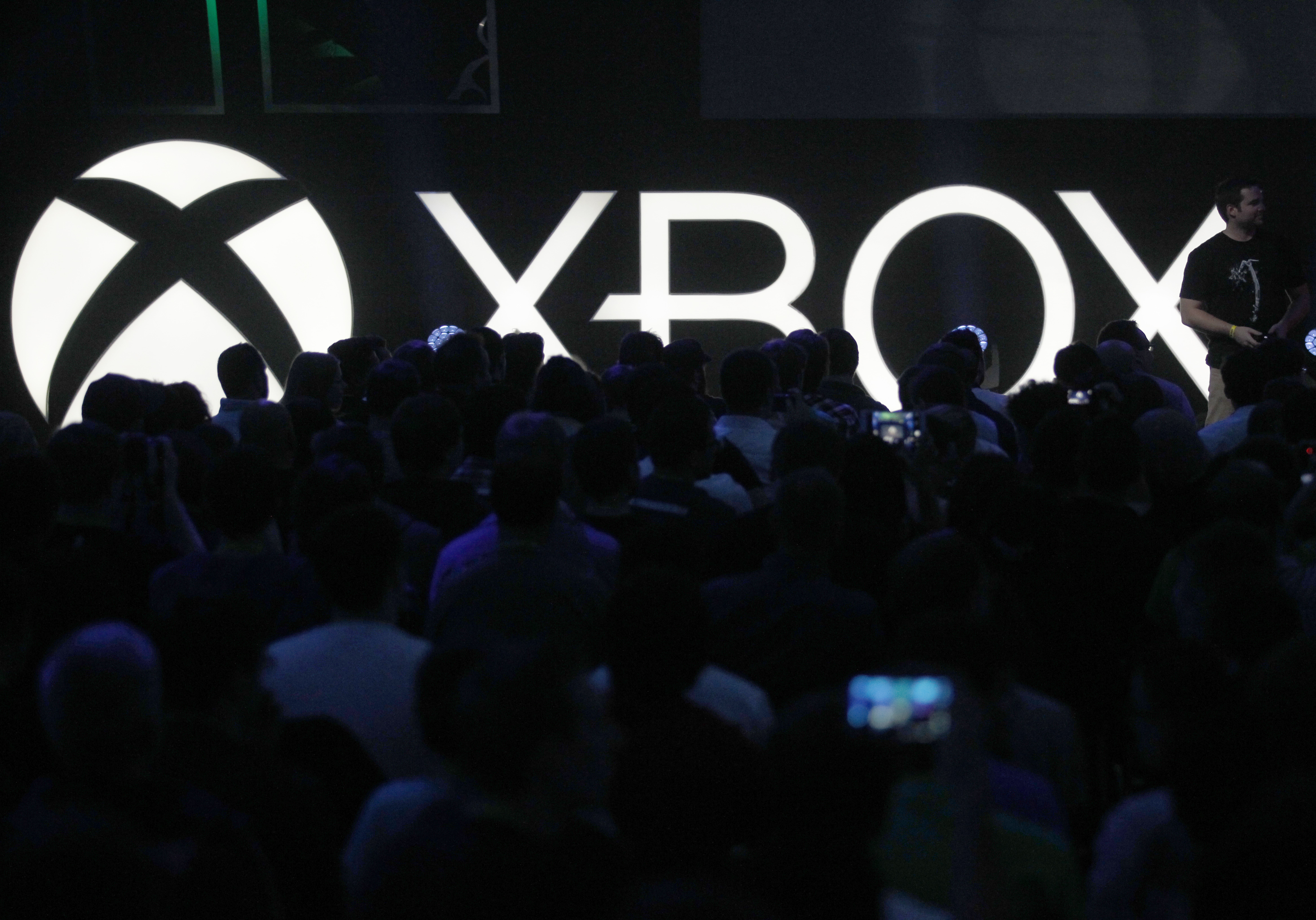
All the latest news, reviews, and guides for Windows and Xbox diehards.
You are now subscribed
Your newsletter sign-up was successful
With the dust settling, the games industry breathes a sigh of relief following that initial flurry of summer games showcases, marketing events, and previews. We still have more shows on the horizon as we head towards the busy Q3-4 season, with Gamescom and others, but for Xbox fans, the bulk of the news is now out there thanks to the Xbox and Bethesda Showcase last week.
For 90 minutes, Microsoft and its teams across Xbox and ZeniMax, and its partners, showcased a huge array of games of all shapes and sizes. Interestingly, the showcase focused almost entirely on games slated for the next 12 months, which reveals a maturing strategy that may prove better for game developers, while linking back to the Xbox Game Pass subscription model.
Here's why I think the Xbox showcase was the best they've had in years, and why I think they should lead with this format going forward.
Going broad: Variety first
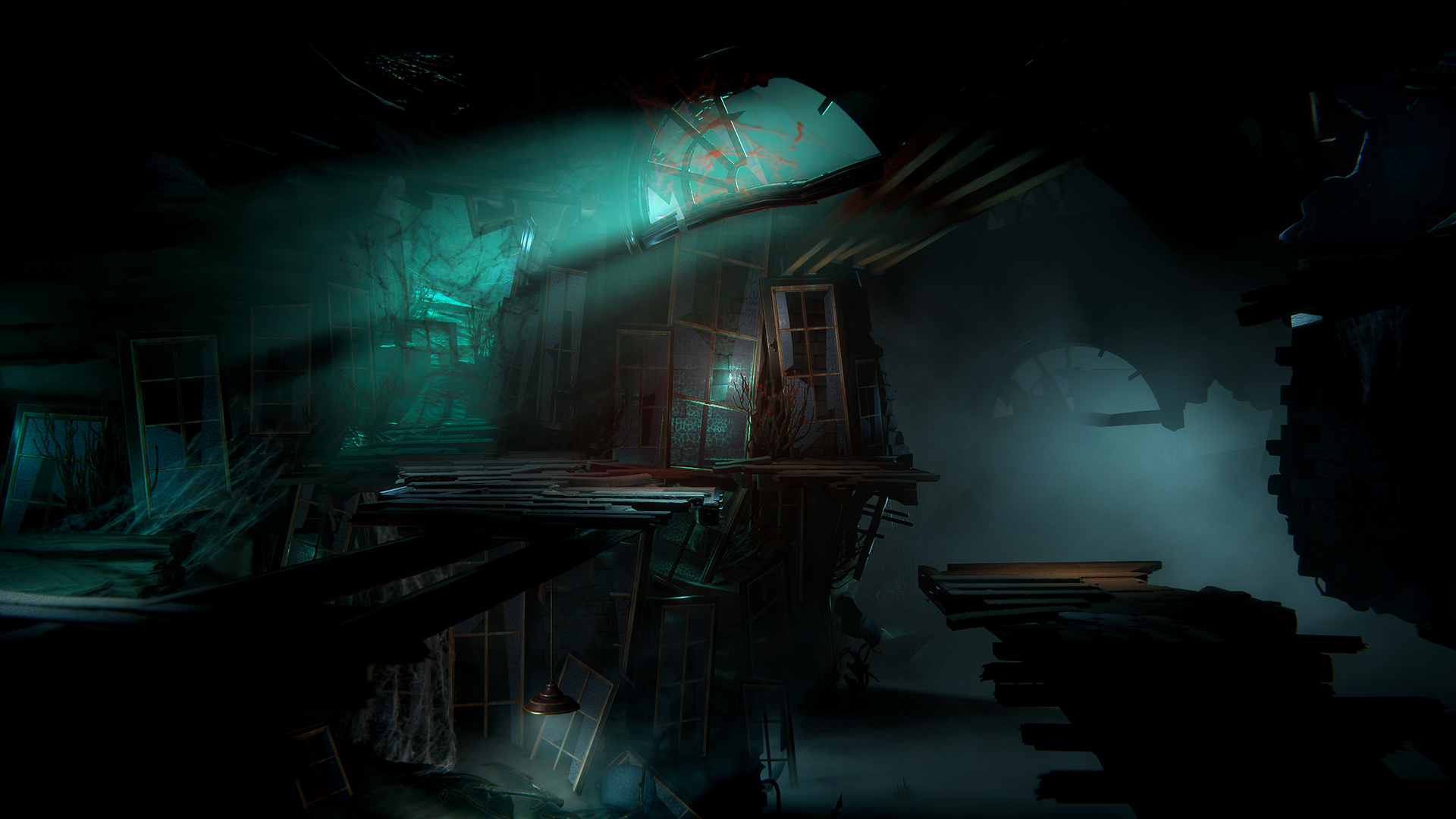
Microsoft has made no attempt to hide its North Star: meeting the world's 3 billion gamers, no matter who they are, or where they are. Their approach to meeting this goal is ultimately about going broad while eliminating as many barriers to the ecosystem as possible.
Whether it's cheaper consoles like the Xbox Series S, or removing the console altogether, using Xbox Cloud Gaming apps on TVs — Microsoft's goal is to deliver something for everyone and to eventually have the largest audience on the planet for its developer partners.
You can't do that without games, of course, which is why the tip of the spear for Microsoft's Xbox strategy is Xbox Game Pass. The low-cost all you can eat subscription service is quietly disrupting the industry, helping indie developers get upfront investment while lowering barriers to the costs of gaming for millions.
Microsoft's showcase displayed that they're not simply about buying up games to pad their numbers, but they also put smaller titles on the big stage right next to the Starfields and Diablo IVs of the world. Through the event, we discovered a truly wild array of genres. Microsoft gave strategy games a platform with Minecraft Legends and ARA: Untold History. We saw simulation games like Forza Motorsport and Flight Simulator. Microsoft wove in narrative adventure titles like Pentiment and As Dusk Falls. Sharp-looking indie games like Ravenlock, Hollow Knight: Silksong, STALKER 2, The Last Case of Benedict Fox, High on Life, and Ereban: Shadow Legacy got to share the stage too.
All the latest news, reviews, and guides for Windows and Xbox diehards.
Microsoft addressed fans of Japanese games with Persona 3, 4, and 5 hitting Xbox for the first time, while announcing a partnership with the legend Hideo Kojima of Metal Gear fame himself. Microsoft showcased high-quality third-person action games with Flintlock, Plague Tale: Requiem, and Wo Long: Fallen Dynasty. Co-op gamers are eating good with Redfall and Grounded 1.0. Competitive games like Nakara: Bladepoint and Overwatch 2 lit up the stage. And we got our headline AAA sure-fire megahits in the form of Diablo IV and Starfield.
The sheer breadth of diversity on offer is something Microsoft continues to nail, hitting every genre vertical on a high note with epic partnerships, many of which will be included day one into Xbox Game Pass. You could argue even third-party games like Diablo IV will be represented on Xbox Game Pass too given that Microsoft is trying to acquire Activision Blizzard. Furthermore, all of these upcoming Xbox games are dropping within the next 12 months.
The message Microsoft is sending here is quite clear — "We have something for everybody at Xbox."
I saw a bunch of criticism for the showcase which I believe, in part, stems from how much of the Microsoft showcase wasn't your typical "AAA photorealistic cinematic action games only" affair. In ages past, shows have often been skewed heavily towards specific types of games, but that simply isn't how you grow a platform like Xbox Game Pass. Much like Netflix, you need to be catering for every genre, and not shy away apologetically for showcasing that diversity.
The message Microsoft is sending here is quite clear — "We have something for everybody at Xbox." But also it felt like a message to developers too — "we want new ideas. We are willing to showcase experimental games, smaller games, and niche games, and cater to all tastes."
Part of Microsoft's mission statement is "empower others to do more," and I think this showcase really proved that that lofty goal isn't simply corporate lip service.
A 12-month focus is better for both gamers and devs
I think the era of lengthy announcement to release marketing cycles are probably drawing to an end. The reasons for this are probably multifold. Service-type games like Apex Legends and GTA: Online have reduced the necessity for many big publishers to release multiple major titles per year, for one thing. I think the complexity of modern game development is also a factor, with many aspects of polish and shine added further towards the end, making it harder to build vertical slices.
In the past, developers have relied on pre-rendered footage or "enhanced" in-engine video to give gamers an idea of how a title might look as a finished product. But to some degree, the audience that typically pays attention to these types of marketing cycles has gotten wise to it. Games like Watch Dogs and The Division notoriously looked very different between their initial reveal to final launch, and gamers have grown tired of unrepresentative cinematic CGI trailers too. Microsoft specifically said that this year's showcase was a response to criticisms of their use of CGI trailers and footage, which also probably contributed to the 12-month roadmap games lineup.
This format is better for both gamers and developers, I believe. Taking CGI trailers out of showcases, or announcements for games that are 2-4 years away gives more breathing space to include smaller games, indie titles, niche genres — showcasing games you might end up loving, that you may otherwise never discovered. This is wholly in line with Microsoft's "empower others to do more," giving AAA marketing time to titles that would otherwise potentially not have the chance.
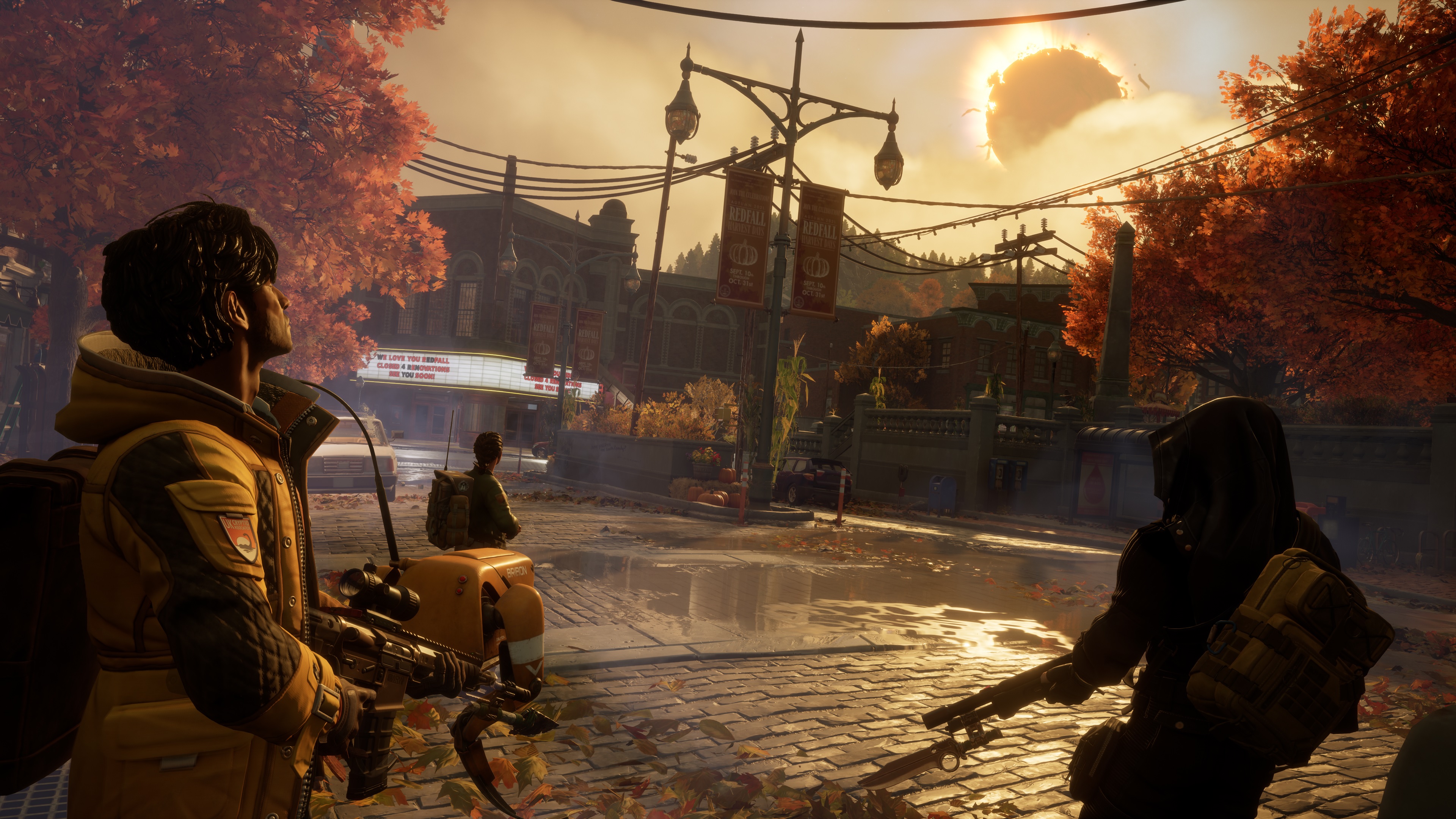
It's better for gamers and developers by more appropriately managing expectations, too. The Xbox One generation was punctuated with over-budgeted CGI that nowhere near properly represented the finished product. ReCore's CGI trailer is one of the most gorgeous trailers of its time, clearly funded by Microsoft. The game was essentially an indie title, though, being built by a small team. It was unfair to heap on AAA expectations onto what was essentially a smaller game, both for the developers, and customers who were perhaps hoping for something more.
I think the use of CGI for AAA game announcements can be appropriate if it can deliver on the expectations being set, but at the same time, perhaps that CGI slot for a game that's 2+ years away could be used to help lift up a smaller developer instead. Furthermore, announcing games that are several years out can further create disappointment and volatile expectations, given that delays and other developmental hurdles may increase the lead time between announcement and release in unexpected ways.
In an extreme example, Beyond Good and Evil 2 was famously announced all the way back in 2017, after being teased as early as 2008. The game's absurdly lengthy development cycle doesn't paint a rosy picture for the game's prospects, simply serving to frustrate fans in the process.
Creating a representative vertical slice of a game, suitable for a trailer, is not a cheap nor simple process. It pulls developers away from actually building the game for one thing, but given the layers of complexity modern games have, much of the sparkle might not even be implemented correctly. You need only look at the difference between Halo Infinite's gameplay reveal, and the visuals on the finished product, for an example of how much difference a year of polish can make.
Creating a representative vertical slice of a game, suitable for a trailer, is not a cheap nor simple process.
When you factor in lighting and shadows, new effects like ray tracing, ever-growing worlds and ever-growing expectations, it's no wonder that increasingly publishers are shy to show off in-development games. Even Diablo IV, which looked incredible in my view, was emblazoned with a very large "this game isn't finished" disclaimer.
Expecting gameplay slices for games that are more than a year away from launch increasingly seems unrealistic, but in an Xbox Game Pass world, do they even make sense? Increasingly Microsoft's showcases slant towards titles that are day one Xbox Game Pass games. It seems to make more sense in a subscription-first world that Microsoft would seek to showcase a range of titles that were coming sooner, rather than later, which gives a clearer picture of the short-term value of the subscription.
A more mature strategy
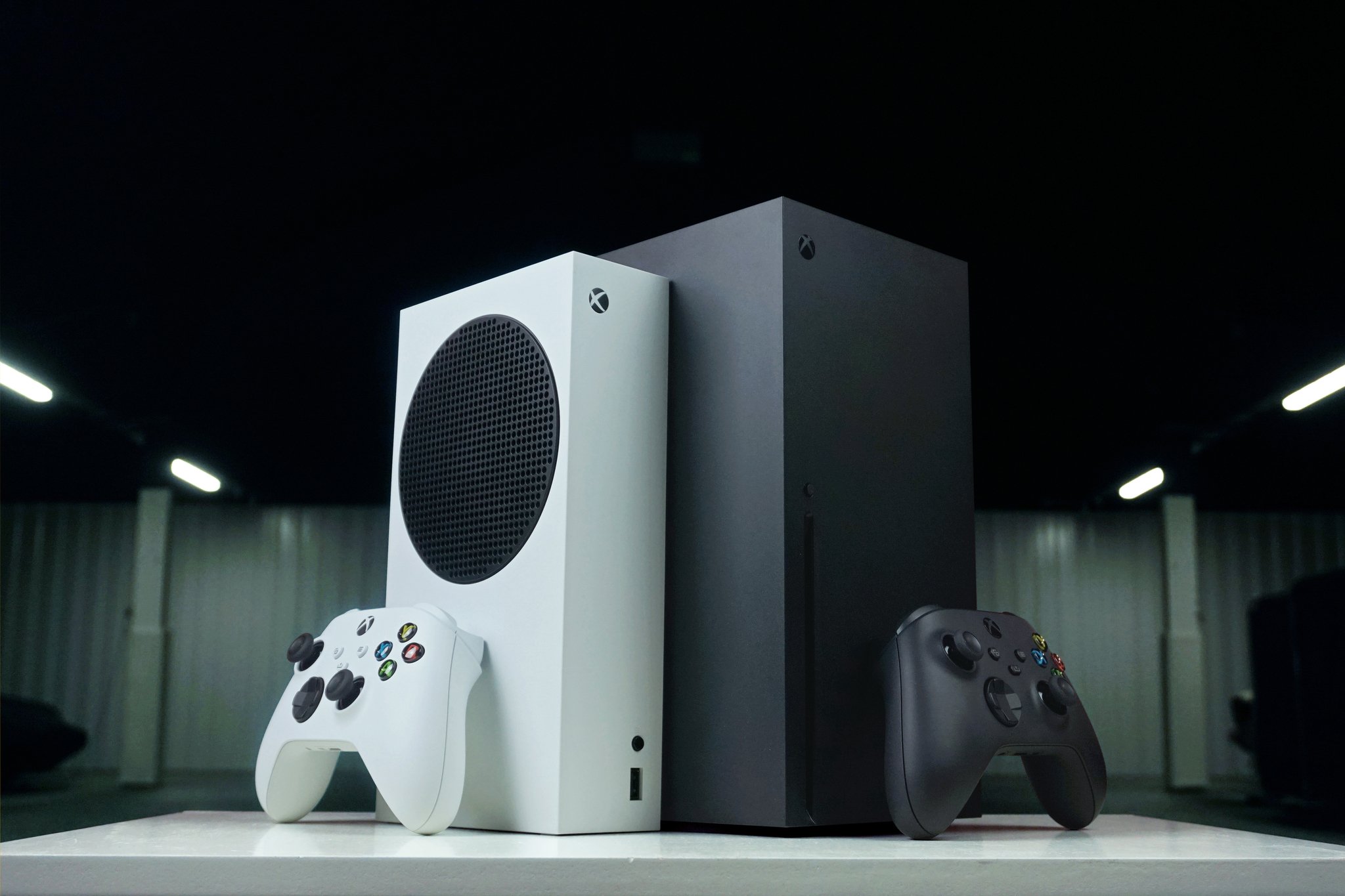
I'm sure there's a school of thought that Microsoft should gun for headline-grabbing announcements and nostalgia plays, even if they're further out.
Say that Microsoft has secretly started working on a new Banjo Kazooie. Would you rather they announced it four years ahead of launch with a CGI trailer, with the possibility it could be eventually canceled like Scalebound or Phantom Dust — or would it be better for them to hold their nerve, and reveal it with a CGI and representative gameplay trailer 2-1 punch, complete with a reasonable launch timeframe? Announcing a game like that so early is ultimately just fan service, which is great when executed properly. But when you have a smaller high-quality independent game launching in the next few months that could be shown off instead, it feels like a far more worthwhile use of that time.
If we're not just pandering and we truly are anti-crunch and pro-developer then a degree of patience is surely preferable. I am in favor of allowing games to be shown off when they're ready. I prefer celebrating smaller games that might not be for me but may get another fanbase excited, over CGI announcements that represent games that are years away. And given the wide array of great independent titles that desperately need and deserve a platform, I think Microsoft can sideline announcements for games that are several years out if they merely represent concepts that may never materialize into a finished product.
I don't think Microsoft should bake in a hard rule that all of its showcases should only feature games slated to launch in the next year. If it makes sense to show off a game further out, and the content is right and representative, then that's great too. But I wanted to speak up and say that I loved the direction Microsoft took with the Xbox and Bethesda Showcase this year, and hope they'll maintain its spirit in future shows moving forward.
Microsoft showed up for developers and creators of all shapes and sizes, fans of games of all genres, broad and niche, across virtually every platform paradigm from PCs, consoles, cloud apps on TV, and smart devices. Microsoft still has plenty to do, but this showcase was in some ways a metaphor for the general direction of Xbox — the culmination of a vision that represents a truly immeasurable effort of thousands of developers, engineers, and artists across hundreds of disciplines.
This showcase season, Microsoft said, "We are here for everyone."

Jez Corden is the Executive Editor at Windows Central, focusing primarily on all things Xbox and gaming. Jez is known for breaking exclusive news and analysis as relates to the Microsoft ecosystem — while being powered by tea. Follow on X.com/JezCorden and tune in to the XB2 Podcast, all about, you guessed it, Xbox!
